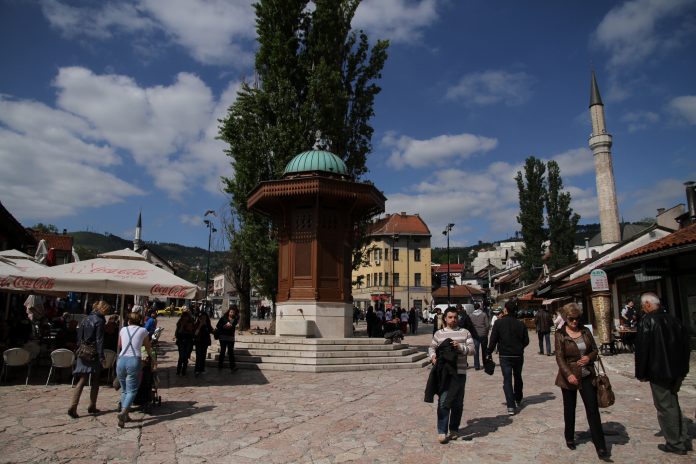A second meeting of the European Union and Council of Europe joint programme “Horizontal Facility for the Western Balkans and Turkey” was hosted on April 11 by Bosnia and Herzegovina. The aim of the meeting was to review the progress achieved to date.
The three-year Horizontal Facility (May 2016 – May 2019) aims to assist authorities in South-East Europe to achieve greater compliance with European standards in three key areas: ensuring justice, fighting corruption, economic crime and organised crime, as well as combating discrimination and the protection of the rights of vulnerable groups.
The meeting was attended by officials from Bosnia and Herzegovina, as well as representatives of the Directorate of European Integration, European Union and the Council of Europe.
According to a post on the Council of Europe’s website, Bosnia and Herzegovina was allocated €2.7m for four projects: enhancing human rights protection for detained and sentenced persons; strengthening the Human Rights Ombudsman to fight discrimination; Quality Education in multi-ethnic societies and strengthening the protection of national minorities.
Almir Sahovic, the assistant minister at the foreign affairs ministry, stressed the importance of the collaboration between the European Union, Council of Europe and the national authorities in bringing the country closer to European standards, especially in the context of the application of Bosnia and Herzegovina for EU membership.
In turn, Melvin Asin, who heads the Cooperation of the European Union Delegation to BiH, underlined the continued support of the EU together with the Council of Europe in assisting BiH authorities towards EU accession in the areas of justice, law enforcement, human and minority or social rights.
“In practical terms, EU/CoE through this Programme assisted the Ombudsperson Institution to better combat hate crime and hate speech,” said Asin. “Moreover, the regional cooperation and knowledge exchange on EU anti-discrimination standards, prevention and protection mechanisms was further strengthened.
“To further enhance the protection of human rights of sentenced and detained persons, following extensive training to staff from prisons and enforcement agencies, a team of law enforcement trainers was established which is accredited to deliver human-rights based training programmes,” he added. “Last, but not least, the new Handbook on prisoner management (the first document of its kind, produced and delivered in BiH) will allow for consistent handling of prisoners according to European standards.”

